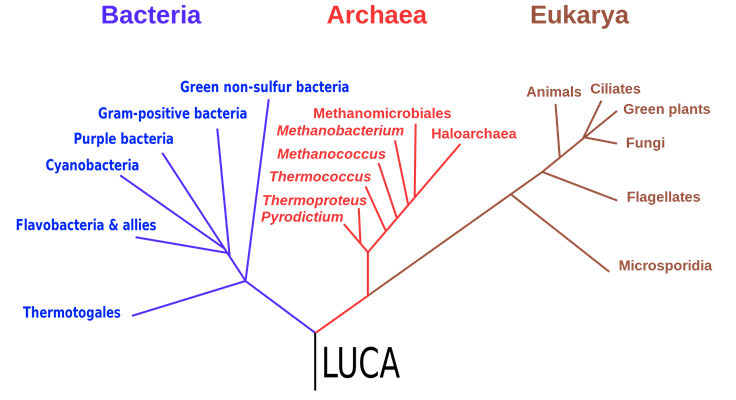The study of LUCA, the Last Universal Common Ancestor, represents a fascinating journey into the roots of life on Earth. In this blog post, we'll delve into the science behind LUCA and explore the intriguing findings from scientific studies. The concept of LUCA is significant in evolutionary biology. LUCA, short for the Last Universal Common Ancestor, is a hypothetical organism that is believed to be the common ancestor of all life on Earth. This intriguing concept is central to the field of evolutionary biology and has led to groundbreaking scientific research over the years.
Imagine a massive family tree that includes all living things on Earth, from plants to animals to tiny microbes. Now, at the very bottom of this tree, there's a single, ancient ancestor that all living creatures, including us, share in common. That's LUCA, which stands for the Last Universal Common Ancestor.
LUCA is like the great-great-great-great-great-grandparent of every living thing on Earth.
It lived a mind-bogglingly long time ago, so long ago that it's challenging to pinpoint exactly when. But what makes LUCA so special is that it's the closest thing we have to a "first life form" from which all other life evolved. Scientists don't have a time machine to meet LUCA, but they've used some super-smart techniques to piece together its characteristics and what it might have been like. They think LUCA was a tiny, simple, single-celled organism, probably similar to bacteria. It didn't have fancy features like a nucleus or complex organs like we do. Instead, it likely lived in harsh, extreme conditions, perhaps deep in the ocean or near hot volcanic vents. Studying LUCA is like solving a massive puzzle. Scientists use clues from the DNA of living organisms to figure out how all these different creatures are connected on the family tree of life. LUCA is the point where all those branches come together.

Knowing about LUCA helps us understand our origins and how life on Earth developed. It's like discovering a piece of the Earth's history book that tells us where we all came from. So, when we talk about LUCA, we're exploring the ancient story of life itself, and it's a story that continues to amaze and inspire scientists all over the world. LUCA plays a pivotal role in understanding the origin and evolution of life on our planet. It helps scientists trace the roots of the tree of life and unravel the complex relationships between different organisms. By studying LUCA, researchers gain insight into the characteristics, habitats, and metabolic pathways of the earliest life forms.
LUCA, the Last Universal Common Ancestor, stands as a critical figure in our quest to understand the origin and evolution of life on Earth. Scientific studies and research have provided invaluable insights into LUCA's characteristics, habitat, and its role in the grand tapestry of life's history. By exploring this remarkable concept, we gain a deeper appreciation for the interconnectedness of all living organisms and the rich history of life on our planet.
